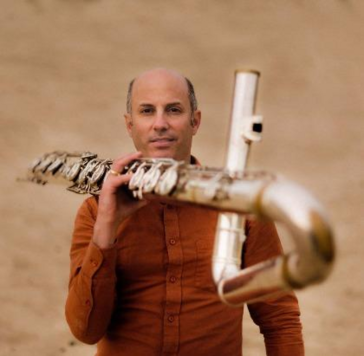VHL University of Applied Sciences (VHL) is a sustainable University of AppliedSciences that trains students to be ambitious, innovative professionals andcarries out applied research to make a significant contribution to asustainable world. Together with partners from the field, they contribute to innovative and sustainable developments through research and knowledge valorisation. Their focus is on circular agriculture, water, healthy food & nutrition, soil and biodiversity – themes that are developed within research lines in the variousapplied research groups. These themes address the challenges that are part ofthe international sustainability agenda for 2030: the sustainable developmentgoals (SDGs). This booklet contains fascinating and representative examplesof projects – completed or ongoing, from home and abroad – that are linked tothe SDGs. The project results contribute not only to the SDGs but to their teaching as well.
MULTIFILE

Deze casestudie geeft inzicht in verschillende soorten kennis die kenmerkend zijn voor applied design research. Er wordt onderscheid gemaakt tussen kennis over de huidige situatie, over wenselijke alternatieven en over effectieve oplossingen om daar te komen. Ofwel, kennis hoe het is, kennis over hoe het kan zijn en kennis over hoe het zal zijn als we effectieve oplossingen toepassen. Elk van deze soorten kennis heeft andere kwaliteitscriteria.

Over the last two decades, institutions for higher education such as universities and colleges have rapidly expanded and as a result have experienced profound changes in processes of research and organization. However, the rapid expansion and change has fuelled concerns about issues such as educators' technology professional development. Despite the educational value of emerging technologies in schools, the introduction has not yet enjoyed much success. Effective use of information and communication technologies requires a substantial change in pedagogical practice. Traditional training and learning approaches cannot cope with the rising demand on educators to make use of innovative technologies in their teaching. As a result, educational institutions as well as the public are more and more aware of the need for adequate technology professional development. The focus of this paper is to look at action research as a qualitative research methodology for studying technology professional development in HE in order to improve teaching and learning with ICTs at the tertiary level. The data discussed in this paper have been drawn from a cross institutional setting at Fontys University of Applied Sciences, The Netherlands. The data were collected and analysed according to a qualitative approach.

Students in Higher Music Education (HME) are not facilitated to develop both their artistic and academic musical competences. Conservatoires (professional education, or ‘HBO’) traditionally foster the development of musical craftsmanship, while university musicology departments (academic education, or ‘WO’) promote broader perspectives on music’s place in society. All the while, music professionals are increasingly required to combine musical and scholarly knowledge. Indeed, musicianship is more than performance, and musicology more than reflection—a robust musical practice requires people who are versed in both domains. It’s time our education mirrors this blended profession. This proposal entails collaborative projects between a conservatory and a university in two cities where musical performance and musicology equally thrive: Amsterdam (Conservatory and University of Amsterdam) and Utrecht (HKU Utrechts Conservatorium and Utrecht University). Each project will pilot a joint program of study, combining existing modules with newly developed ones. The feasibility of joint degrees will be explored: a combined bachelor’s degree in Amsterdam; and a combined master’s degree in Utrecht. The full innovation process will be translated to a transferable infrastructural model. For 125 students it will fuse praxis-based musical knowledge and skills, practice-led research and academic training. Beyond this, the partners will also use the Comenius funds as a springboard for collaboration between the two cities to enrich their respective BA and MA programs. In the end, the programme will diversify the educational possibilities for students of music in the Netherlands, and thereby increase their professional opportunities in today’s job market.
